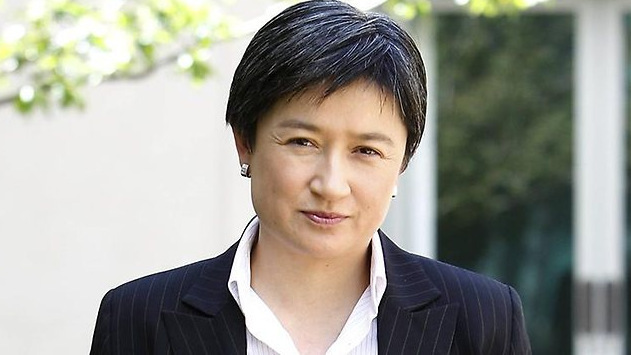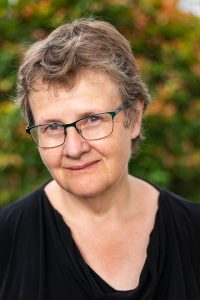
Walkley Award winning journalist Margaret Simons is no stranger to writing about people who don’t want to talk. But writing a biography about a person who initially wanted no part in the project took years of persistence. Simons will release the unauthorised biography of one of Australia’s most private public figures, Penny Wong: Passion and Principle, on October 1.
Simons set out to write a book about the life of South Australian Labor senator Penny Wong three years ago.
It was to be the freelance journalist and academic’s Simons’ 13th book, joining her growing catalogue of works, which include the co-written biography of former Australian Prime Minister Malcolm Fraser, an unauthorised biography of Seven Network chairman Kerry Stokes and numerous essays and articles.
But, when Simons approached Wong to discuss the project she was flatly refused.
“I dropped the idea at that point,” says Simons. “I tried again in late 2017.”
One year on, Wong still would not meet.
Simons instead began interviewing the politician’s friends, colleagues and former lovers –buoyed by the fact that at least Wong was not dissuading others from talking.
“I spent the first 12 months researching the book without her co-operation, and I was not sure that I would ever meet her,” says Simons.
“It was only after a year of research that I was called to her office in Adelaide, for what was essentially an off-the-record meeting … and she gave me quite a talking to.
“She said, ‘why on earth had I taken a contract to write the book when I knew she was opposed to it?’ She obviously thought that was a reprehensible thing to do.
“She told me … she felt me ‘a shadow in the corner of her life’. And I told her that I thought it was important and interesting and that’s why I was doing it – and yet, she continued to give me quite a hard time. But at the end of that encounter, which did turn into a rushed kind of interview, she agreed to see me again.”
The idea to write Wong’s biography was initiated by Simons’ publisher Black Inc. Simons agreed the idea was worth pursuing, particularly given the Shadow Minister for Foreign Affairs was a very private and also widely respected figure.
“And in recent years she has gained a kind of cult following, which is intriguing because she is the antithesis of populism,” Simons says.
“She’s popular without being populist in these populist times. That was interesting. And also, in many ways she is different from the standard politician, an Asian gay woman, and an underlying question there is: how different is she politically?
“I think people tend to assume that she’s not a standard politician but a question in the book is: to what extent is her public image who she really is?”
Wong has broken the mould on a number of fronts. She was the first woman to become Leader of the Government in the Senate, the first woman Leader of the Opposition in the Senate and the first openly gay Australian female politician.
Despite Wong’s successes, “cult following” and that she is named “one of the most able politicians of our generation” by numerous people in the book as well as by Simons, the author says she thinks it is “extremely unlikely” that Wong will make a bid for the top job.

“She’s been entirely consistent in saying she doesn’t want to be Prime Minister,” Simons, pictured right, says.
“She believes the country is not yet ready for a gay Asian woman as the Prime Minister.”
The third of Simons’ biographies, the author says researching and writing Penny Wong: Passion and Principle was not unlike writing Malcolm Fraser: The Political Memoirs in that both of Simons’ subjects consumed her thoughts.
“I’ve reflected, a number of times, that it would be very hard to write a biography of somebody who you really disliked,” she says.
“There is a weird kind of affection with writing biography and I certainly found that with this one. At least Penny didn’t ring me up at 7 o’clock in the morning wanting to talk about China, which Malcolm Fraser did.
“The final chapter is, in fact, about China and … what she would have done as the foreign minister had the election gone differently. And I think that chapter only grows more relevant as the weeks pass.”
That Simons lived with both Wong and Fraser inhabiting her thoughts is about where the similarities between writing the two books ends, according to Simons.
Working with Fraser was “very much a collaboration” which involved “fierce arguments” while Simons says Wong was cautious and never truly warmed to the idea of the book.
The reason for this, she says, is that underneath the persona that all politicians have to acquire, Wong is an introvert.
“I think she is really shy,” Simons says.
“[She was] very ambivalent about having a book all about her, and even in our final interview she said, ‘in an ideal world this wouldn’t be being done’.
“We got on quite well, despite her ambivalence about the project. When we were underway in the interview, I didn’t feel that she was antagonistic to me on a personal level and she obviously quite enjoyed talking quite in-depth about some of the policies.”
Throughout the course of their meetings Simons says she was surprised by how emotional the Malaysian-born South Australian was.
“She is extremely logical but … she is also quite emotional and quick to tears, quick to anger – and she describes herself to me as someone who is very driven by emotion.”
The Adelaide-raised biographer interviewed Wong six times between November 2018 and July 2019 with each meeting lasting about 90 minutes.
“At the end of each interview I wasn’t ever really sure I was going to get another one. That made it difficult.
“But in the end, I hope it sheds light on a really fascinating politician … I think it also sheds light on politics and our democracy and the extent to which it does and doesn’t work.
“We have … an extremely accomplished and intelligent and principled woman and yet when you look back at what she has been able to achieve, it’s chequered.”
Having completed the biography Simons is onto her next projects, which include a book on the recent history of the Australian Broadcasting Corporation and a quarterly essay on the Murray Darling Basin.
But Simons hasn’t been able to shake Wong completely.
“It (the biography) is still hanging over me… [but] I’m no longer waking up at 2 o’clock in the morning thinking about Penny Wong. That’s good. That’s a lot actually.”
This is a Creative Commons story from The Lead South Australia, a news service providing stories about innovation in South Australia.





